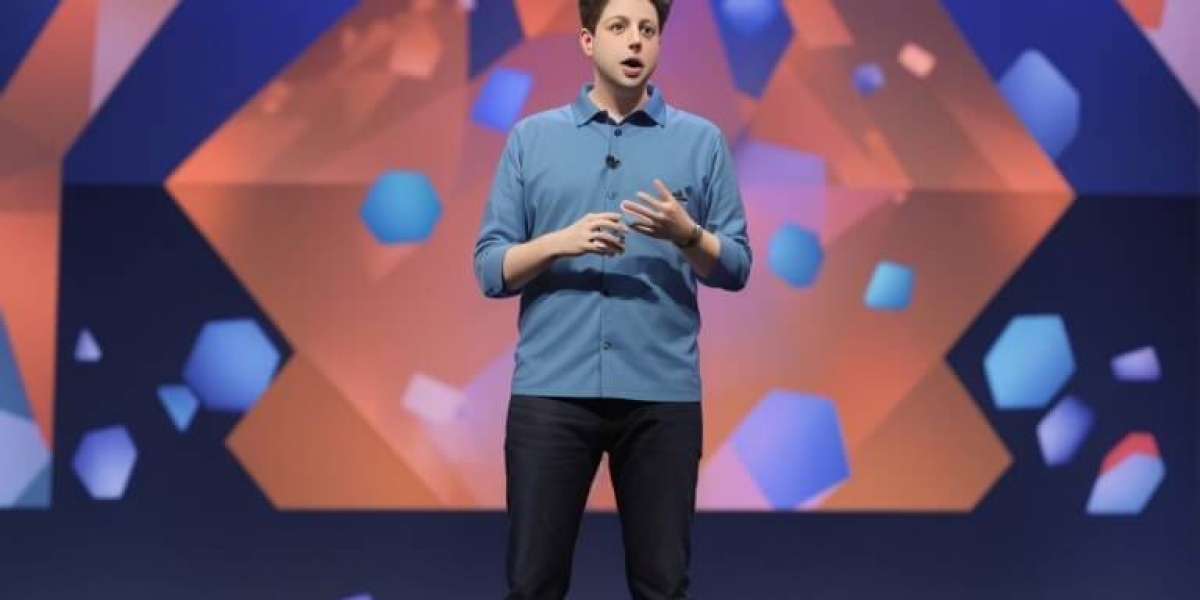OpenAI, the frontrunner in artificial intelligence innovation, has made significant strides in advancing its consumer business by launching a groundbreaking marketplace for personalized AI applications. The move, announced during the company’s inaugural developer conference, is set to redefine how users access AI-driven solutions for many real-world tasks.
OpenAI’s Chief Executive, Sam Altman, took center stage during the developer conference, where he shared an ambitious vision for the future of AI. Altman introduced the concept of “GPTs,” early versions of AI assistants designed to perform diverse tasks, ranging from teaching math to booking flights, on behalf of users. This announcement marks a pivotal step towards democratizing AI by making it more practical and accessible.
The GPT store: Where innovation meets earnings
OpenAI is set to open the doors to the “GPT Store” later this month, offering a platform for individuals to share their customized GPTs. Users can monetize their creations based on the number of users they attract, encouraging innovation and collaboration within the growing GPT ecosystem. This move comes after earlier attempts by the company to establish a ChatGPT plugin ecosystem, signifying a renewed effort to harness the full potential of its AI platform.
In his keynote address at the San Francisco event, Sam Altman highlighted the vision of a future where users can simply ask their computers to perform tasks, and AI-driven GPTs will seamlessly carry them out. He emphasized the importance of gradual iterative deployment to address the safety challenges inherent in AI. OpenAI’s approach aims to balance innovation with caution as they pioneer the next wave of AI advancements.
Developer-centric Updates: Cost reduction and new models
OpenAI’s commitment to developers was further underscored by a series of updates to enhance their capabilities. A new model, the GPT-4 Turbo, was introduced, promising to be significantly more cost-effective while processing larger volumes of data. The company also unveiled assistant application programming interfaces (APIs) with vision and image modalities, confirming reports from Reuters. Additionally, OpenAI launched a beta program for developers, enabling them to fine-tune the GPT-4 models according to their specific requirements. These developments were met with enthusiasm, particularly by startups that benefit from reduced costs.
Positive reactions from the developer community
Even before the event commenced, developers queued around San Francisco’s Mid-Market neighborhood, eager to gain insights into OpenAI’s latest offerings. The livestream of Sam Altman’s speech on YouTube attracted over 40,000 viewers, with some even organizing watch parties to stay informed. The introduction of the GPT-4 Turbo model, which significantly reduces costs, was a particularly exciting development for the 2 million developers already engaged with OpenAI’s technology.
A competitive edge for startups
The reduced costs resulting from the GPT-4 Turbo model were especially beneficial for startups in the AI space. Flo Crivello, the founder of AI assistant startup Lindy, described the cost reduction as a “huge boom” for his business, highlighting a threefold expense decrease. However, he acknowledged the potential competition with OpenAI’s upcoming GPT bots, characterizing the relationship as “complicated.” OpenAI’s stance on this issue was clear, with Sam Altman urging startups to explore deeper integrations on top of the OpenAI platform, recognizing the substantial value in building more complex applications.
OpenAI’s enterprise ambitions
OpenAI aims to foster greater engagement from enterprises and developers by encouraging the creation of models that can rival those developed by major players like Anthropic and Alphabet’s Google. Additionally, they compete for enterprise customers with the tech giant Microsoft. In a surprise appearance, Satya Nadella, the CEO of Microsoft, reiterated Microsoft’s support for pursuing advanced foundation models, reinforcing their deep commitment by investing over $10 billion in OpenAI.
Custom models program: Tailoring AI solutions
OpenAI addressed the concerns of large enterprises by launching the Custom Models program, allowing the creation of bespoke GPT-4 models, albeit at an “expensive” price point. This move is in response to the growing demand for specialized AI models in the business sector. To further instill confidence, OpenAI matched the offers from Google and Microsoft by pledging to cover legal costs associated with potential copyright infringement claims for enterprise users.
A future of collaborative AI solutions
In closing, OpenAI’s strategic moves represent a significant leap forward in AI accessibility. The launch of the GPT Marketplace, the development of GPTs as AI assistants, and the support for developers and enterprises indicate OpenAI’s commitment to pushing the boundaries of what AI can achieve. With the promise of a future where multiple GPTs collaborate seamlessly to accomplish complex tasks, OpenAI envisions a world where AI is both practical and pervasive.
OpenAI’s dedication to striking a balance between innovation and responsible deployment reflects the company’s commitment to ensuring the safe and widespread use of AI technologies. As the AI landscape continues to evolve, OpenAI’s bold initiatives position it at the forefront of this transformative industry, poised to bring AI-driven solutions to the hands of millions.







